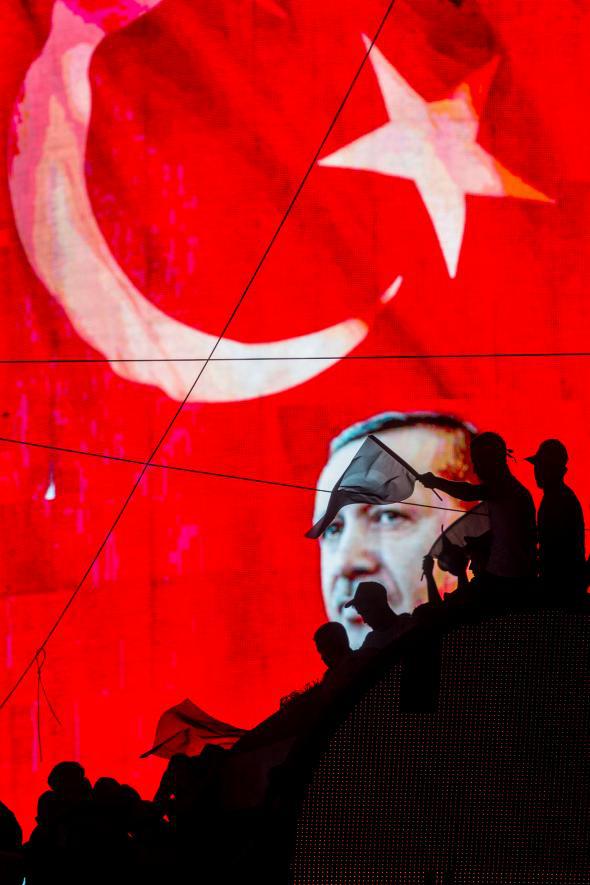President Recep Tayyip Erdogan assumed near-absolute control of Turkey on Wednesday when his government declared a three-month state of emergency less than a week after a failed coup attempt in the country. The move frees the government of almost all constitutional restraints and enables Erdogan to continue his broad purge of thousands of suspected supporters of Fethullah Gulen, a U.S.-based Muslim cleric he has accused of instigating last week’s coup attempt.
Here are some of the powers the government, led by Erdogan’s party, will be granted (Bloomberg) under the state of emergency:
Emergency rule, which was in force in parts of Turkey’s largely Kurdish southeast until last decade, allows the government to issue decrees with the force of law and suspend rights, according to the constitution. Decrees that are approved by parliament can’t even be overturned by the Constitutional Court, the country’s top tribunal, according to the presidential press office. The AK Party that Erdogan co-founded has a clear majority in the legislature. Other special provisions include longer detention of suspects without trial.
The response to the coup, which appears to have been orchestrated by a faction of the Turkish military, has been staggering in its breadth and ambition. “Nearly 60,000 soldiers, police officers, judges and civil servants have been suspended and detained across the country since last weekend, and about 1,000 members of the military have been accused of connections to the attempted coup,” the New York Times reports. Here’s more:
The purges of Turkish institutions included the country’s Education Ministry on Tuesday, when more than 15,000 of its employees were suspended. On Wednesday, academics were barred from traveling abroad for work in an effort to prevent scholars and university teachers accused of participation in the coup plot from fleeing the country, Turkish officials said… [T]wo members of Turkey’s constitutional court were arrested, and the defense ministry fired more than 200 military court judges and prosecutors. Turkey’s state-run news agency also reported that the education ministry was closing 626 private schools under investigation for “crimes against the constitutional order and the running of that order.”
Erdogan was already well down the path of accumulating control in the presidency, at the expense of democracy, after sliding over one seat at the end of his reign as prime minister. Buoyed by Turkey’s pivotal role in managing the refugee crisis out of Syria, Erdogan has been able to exact concessions from Europe, including widening latitude in cracking down on the media and imprisoning the political opposition, along with constitutional reforms.
